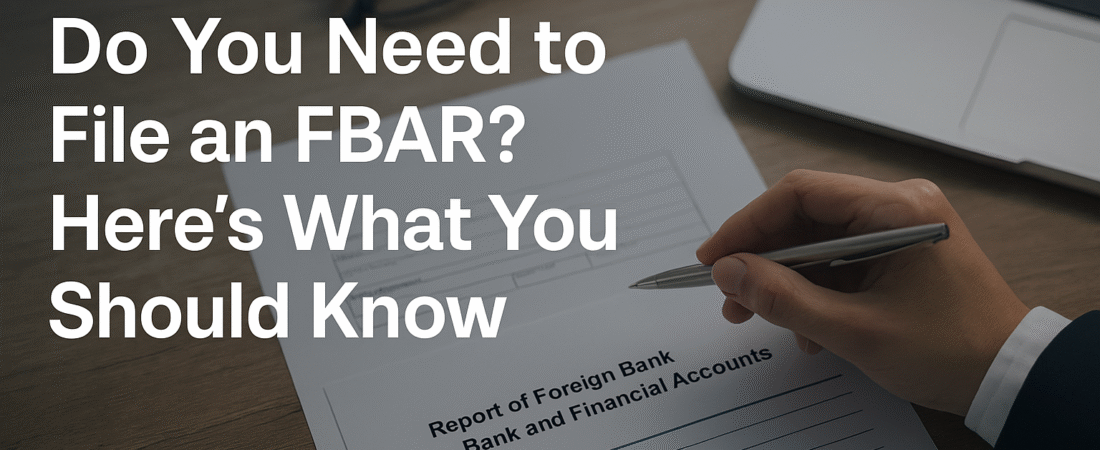If you are a U.S. taxpayer with financial interest in or signature authority over foreign accounts, you may be required to comply with FBAR filing requirements. The Foreign Bank Account Report (FBAR) is a crucial compliance form filed with the Financial Crimes Enforcement Network (FinCEN), separate from your tax return, and failing to meet these requirements can result in serious penalties.
What Are FBAR Filing Requirements?
FBAR filing requirements apply to U.S. persons—including citizens, residents, corporations, partnerships, and LLCs—who have foreign financial accounts exceeding $10,000 in aggregate at any point during the calendar year. This includes bank accounts, brokerage accounts, mutual funds, trusts, or any other type of foreign financial asset.
Who Must File an FBAR?
You must file an FBAR if:
- You are a U.S. person or entity.
- You had foreign financial accounts with a combined value over $10,000 at any time during the year.
- You had signature authority over such accounts, even if you didn’t own them.
This includes accounts held in other countries under your name, jointly owned, or even those over which you have control without ownership.
Example: If you have $6,000 in one account and $5,000 in another, you must file — even if it’s just for one day.
When and How to File
The FBAR is filed electronically through FinCEN’s BSA E-Filing System, and the deadline is April 15, with an automatic extension to October 15.
It’s important to note that FBAR filing is not optional. Even if the income from these accounts is zero, you still must file if you meet the requirements.
Why It Matters
Failing to meet FBAR filing requirements can result in severe penalties—up to $10,000 for non-willful violations, and greater penalties (even criminal) for willful violations. The IRS has increased scrutiny of offshore accounts, and proper disclosure is critical.
These penalties can apply per year, so staying compliant is crucial.
Final Thoughts
FBAR filing isn’t just for big corporations — many freelancers, expats, and dual citizens fall into the filing requirement without realizing it. If you’re unsure whether you need to file, it’s best to consult a tax professional.
💼 Need help with international tax compliance?
At AP Consulting, we offer personalized guidance on FBAR and other IRS reporting requirements.
👉 Contact us today to stay compliant and penalty-free.

